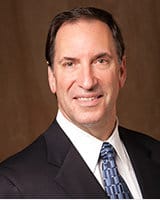
THE PLAY
The lights are dimming, music rises from the orchestra pit, and the curtains are going up! It is the debut of the prospective buyer of your practice! They just arrived and you’re welcoming them into your office for your first meeting! How exciting!
The first meeting creates a powerful first impression for both of you, so it’s important to nail this one. We need to manage this meeting so that everyone wins an Oscar.
The play is written, directed and produced by the buyer. It’s their script, agenda, and production. While that may seem like a slight to the seller, it’s actually a relief when you figure out that it’s just yours to lose, and that all the pressure is actually on the buyer.
To these ends, here are my suggestions for everyone’s role in the meeting. These recommendations assume that a practice broker is involved in the process and has prepared for this encounter.
ACT ONE – THE BUYER
- The broker should have provided a great deal of practice information including financials, management data, and answers to the thousand questions that buyers ask prior to the meeting. Buyers should study that information thoroughly so they are not asking for information that has already been provided. Sellers go to great trouble to provide this information and can rightfully be upset when a buyer doesn’t do their homework and wastes their time in asking for this information again.
- There is nothing a buyer can’t ask. No question is off limits. When making an investment in one’s career and future, no stone should be left unturned. An investment of a half million dollars and more requires thorough due diligence, and if answers and information are not forthcoming, it may indicate serious problems. The process of choosing one’s career is not a time to be shy.
- Everything is to be kept confidential. Buyers are being trusted with a great deal of sensitive information and should protect it. I had a client that drove all night from Montreal to Raleigh with his family to visit a practice. They stopped at a Hardy’s at 5:00 in the morning for breakfast and their waitress asked what brought them to Raleigh. He explained that he came to look at a dental practice to buy. She asked who, and when he told her she said “I am his dental assistant.” True story. So, don’t tell a soul anything.
- Don’t discuss business, especially price, with the seller. That’s why sellers hire brokers, to do sensitive negotiations. Don’t risk getting sideways and losing the best opportunity you’re likely to find over business matters that neither of you may understand. Deal with the broker on price and other deal points.
ACT TWO - THE SELLER
- It’s the buyer’s show. You’re the audience. It’s their agenda. All you have to do is let the buyer look around and answer the questions you’re able to answer and to find answers for ones you don’t know.
- Resist the temptation to be a salesman trying to sell your practice and giving a great sales pitch. It won’t work. This should be a social and professional meeting, not a sales meeting. I had a seller client who opened the door for the buyer and then told the buyer to close it tight when he left and make sure the lock caught and left the buyer to look at the office. The buyer called me 45 minutes later to say that he wanted to buy the office. So much for sales pitches.
- Buyers are entitled to ask and know anything about the practice. There’s nothing off limits. Don’t be offended or upset about any questions and if there’s anything troublesome, have your broker address it with the buyer.
- Do not talk business about the sale, especially price. If the buyer brings it up, tell them that they need to talk to the broker about that. That’s why you hired them.
- Keep all buyer information confidential. Don’t mention their name to anyone, you could get them fired from their job. Buyers are guarding your identity and you need to do the same for them.
- Resist the urge to advise the buyer where to live, go to church, send their children to school and other life style advice.
The play was a huge success. The actors got all of their lines and put in a great performance, and the meeting went on to a successful sale, based in large part on the successful handling of that first meeting.

 Add me to your address book
Add me to your address book



